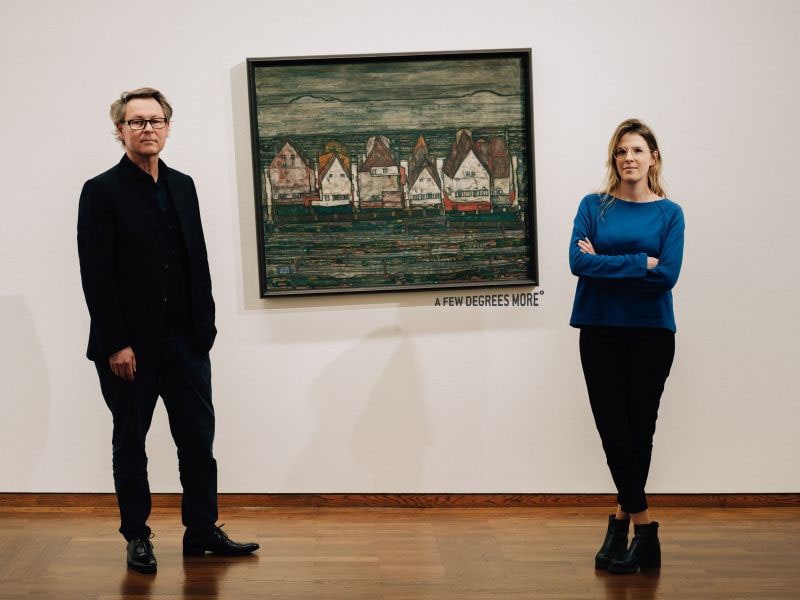
Art for climate action: An exhibit of paintings hung off-kilter references the climate crisis
The Leopold Museum in Vienna is taking a stance in an unexpected manner. The art institution has decided to tilt some of the paintings in its collection to raise awareness of the environmental catastrophe threatening our planet
 The Leopold Museum and the Austrian creative agency Wien Nord Serviceplan are behind the initiative "A Few Degrees More."
Image: Leopold Museum, Wien / Foto: Andreas Jakwerth
The Leopold Museum and the Austrian creative agency Wien Nord Serviceplan are behind the initiative "A Few Degrees More."
Image: Leopold Museum, Wien / Foto: Andreas Jakwerth
As IPCC scientists call for urgent action on climate change, the Leopold Museum in Vienna is taking a stance in an unexpected manner. The art institution has decided to tilt some of the paintings in its collection to raise awareness of the environmental catastrophe threatening our planet.
Curators at the Leopold Museum have deliberately tilted 15 paintings in the exhibition "Vienna 1900. Birth of Modernism," in order to provide a visual representation for the effects of global warming on annual global temperatures. UN climate experts estimate that we are potentially heading towards a planet that is on average 2.7°C warmer (compared to pre-industrial times) by the end of the century, with climate commitments made by countries taken into account. It could even be 4.4°C warmer in the worst-case scenario.
Such increases in temperature could lead to the disappearance of many ecosystems and landscapes, including those depicted in the paintings that the Leopold Museum has decided to tilt. The paintings concerned depict natural areas such as Lake Attersee in Upper Austria, the Alps and the Atlantic coast. They are signed by artists including Gustave Courbet, Tina Blau, Gustav Klimt, Koloman Moser and Egon Schiele. Explanatory signs have been placed next to each tilted painting to encourage visitors to the exhibition "Vienna 1900. Birth of Modernism" to change their lifestyle in order to reduce their greenhouse gas emissions, but also to become politically active in the fight against climate change.
Sustainability and the role of museums
For Hans-Peter Wipplinger, director of the Leopold Museum, this initiative is a testament to the role of museums as key players in initiating and supporting climate action. "Art museums are places in which people can experience the world through the filtered lens of an artist's vision and where they confront themselves with topics, ways of thinking and world views that can at times be inconvenient, challenging or provocative," he said in a statement. "Museums fulfill per se a sustainable role in society by conserving cultural heritage for future generations and by teaching about it. They regard themselves as spaces of inspiration and reflection about our being and thus have the potential to positively impact our future actions by making societal phenomena more visible. In that sense, we declare ourselves in solidarity with the goals of the climate movement."
Also read: Eco warriors: South Africa's school puts green issues at the heart of teaching







